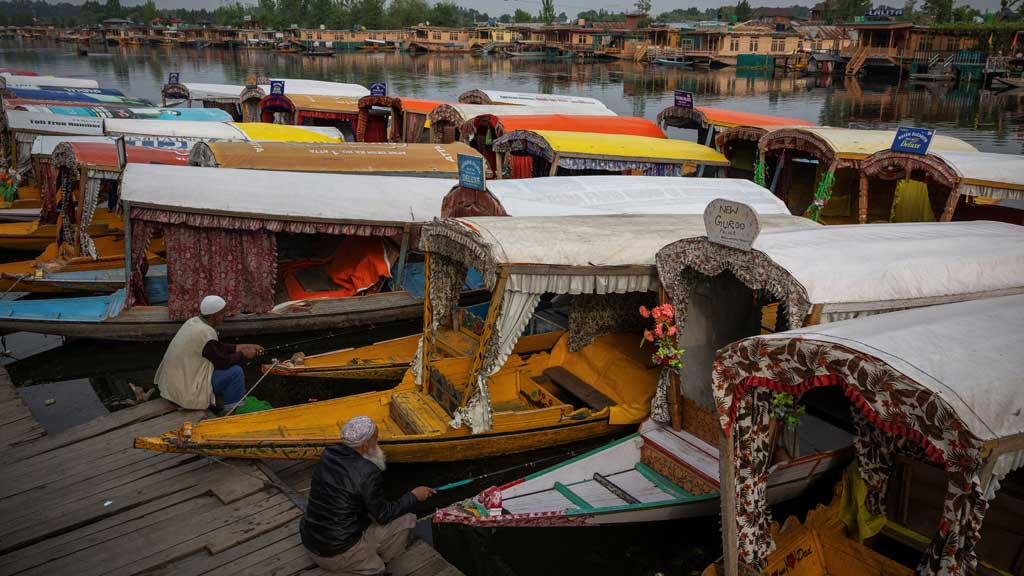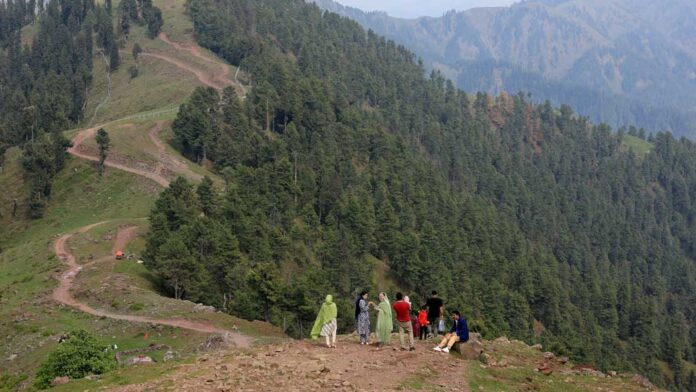Hotels and houseboats in Indian-administered Kashmir are now offering discounts as steep as 70% after tourists fled the region following a deadly attack. Meanwhile, on the Pakistani side, a popular tourist destination near the border has been closed off, as escalating hostilities between the two nations fuel fears of further conflict.
The divided Himalayan territory—famed for its snow-capped peaks, rushing rivers, and Mughal-era gardens—relies heavily on tourism. But with tensions rising between India and Pakistan, tourism has become one of the earliest casualties of renewed hostilities.
India and Pakistan, both nuclear powers, have fought two wars over Kashmir, which each claims in full but controls in part. With frequent skirmishes along the Line of Control, the region often finds itself at the center of its decades-long conflict.
A significant reduction in militancy in recent years and a ceasefire that mostly held for four years had helped ignite a tourism surge. Last year, over 3 million tourists visited the Indian side of Kashmir, while around 1.5 million explored the Pakistani-administered region.
This tourism boom was widely viewed as a success for Indian Prime Minister Narendra Modi’s administration, especially after the 2019 move to revoke Kashmir’s semi-autonomous status, which sparked widespread unrest.
This year, too, hotels, houseboats, and taxis were almost fully booked at the start of the peak summer season—until an attack last month killed 26 tourists in a meadow.
India blamed Pakistan for the assault and responded with diplomatic and economic actions. Pakistan denied involvement, countered with its measures, and warned of a possible Indian military strike.
Yaseen Tuman, who runs a century-old travel agency and several houseboats in Srinagar, said nearly all his bookings were canceled and his boats are now vacant.
“Our houseboats were packed and now we have no guests,” Tuman told Reuters, sitting on a wooden sofa in one of the empty houseboats on Nigeen Lake.
Though Indian travel websites now advertise steep hotel and houseboat discounts, Tuman says he won’t slash his prices. “We will have to prepare for a long lull,” he said.

‘Going to Hurt Badly’
Across the border, in Pir Chinasi—a scenic location perched 9,500 feet above sea level—restaurants and guesthouses sit nearly empty after officials advised caution over a potential Indian strike, despite the area being some distance from the border.
Local authorities confirmed that Neelum Valley, a top tourist destination located right along the Line of Control, is now closed to visitors entirely.
Abrar Ahmad Butt, spokesperson for the regional hotel and guesthouse association, said all 370 establishments in the valley are currently empty. The valley typically sees a flood of tourists beginning in May, as temperatures rise across Pakistan.
“It’s going to hurt badly this season,” he said, adding that tourism supports around 16,000 jobs in the region.
Syed Yasir Ali, an employee at a foreign mission in Islamabad, said he wasn’t deterred from visiting Pir Chinasi with his wife and three sons, even if he couldn’t travel to Neelum Valley.
“This side is safe,” he said, suggesting fears were overblown. “I am on the ground, it is safe.”
Still, the economic impact is evident for small businesses like the one run by Musaddiq Hussain, who operates a tuck shop in the area.
“Business is completely down,” he said. “We should have peace in the country, so that we could prosper. We want both countries to have peace.”
In Srinagar, local taxi driver Tanveer mourned the sudden collapse of tourist traffic.
“The streets were packed, there was no place to drive in the city before the horrific killing,” he said. I wait for a passenger all day. Before the attack, I had no time to take on more work.”



